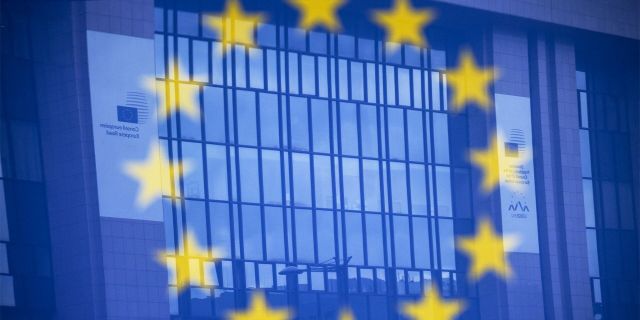Is European security under threat?Europe is going through a number of serious and sometimes unprecedented crises for its modern history, writes the Lebanese newspaper Al Mayadeen.
The author of the article emphasizes that four types of EU security were at risk at once.
Europe has faced numerous and successive crises. The reasons lie in the Russian military operation in Ukraine, concern about interruptions in the supply of energy resources due to the introduction of anti-Russian sanctions, inflation, economic recession, immigration and a wave of refugees.
In addition, European countries are faced with abnormal heat and drought, which will make it more difficult to provide them with electricity in the coming winter.
The West has not experienced such a deep, complex and dangerous crisis as the rupture of relations with Russia since the early 1990s, that is, since the collapse of the Soviet Union and Yugoslavia, and the signing of the Maastricht Treaty, which marked the beginning of economic and political integration and "Europe without Borders".
The main principle of security is the absence of threats. Historically, "security" has been identified with military security, protection from armed attack or military conflicts. But the 20th century expanded the understanding of "security" to include everything from the economy to the environment and social problems.
Currently, the main problems threatening European security include:
1. Military security Military security allows European countries to pursue an independent policy and defend themselves by military means.
To a large extent, it is achieved through the deployment of US and NATO military bases in Europe.
2. Energy security Due to fears that Russia will completely stop gas supplies, which will lead to an increase in electricity bills and the need to rationalize its consumption in winter, the abnormal heat and drought have seriously aggravated the energy crisis in Europe.
The fall in the level of rivers and lakes has led to the drying up of reservoirs of hydroelectric power plants and a decrease in their production capacity. Indeed, the production of hydroelectric power in Western Europe in the second quarter of 2022 decreased by 20% compared to the annual average. According to official data, in July 2022, reservoirs in France and Spain had critically low water levels for more than two decades.
Drought and water shortages are also disrupting the cooling system of nuclear power plants. This means that it is necessary to produce more electricity through the use of natural gas. In Switzerland, for example, one of the three nuclear power plants had to reduce production due to abnormally high temperatures and falling water levels.
Norway, in turn, decided to restrict electricity exports in order to stop the rise in energy prices, give priority to filling its own storage facilities and ensure the country's energy security.
3. Food safety The extremely high temperatures and the fires caused by them have created many problems for the European food industry.
Austria has announced that hundreds of fish have died due to high temperatures in Lake Zicksee. In addition, farmers are holding strikes and demonstrations against government policies aimed at reducing greenhouse gas emissions, which, according to them, will significantly reduce agricultural and livestock production.
In July, the Joint Research Center of the European Commission warned of a decrease in yields as a result of hot and dry weather, and also predicted a drop in the harvest of corn, sunflower and soybeans by 8-9%. It is reported that the French wheat harvest will decrease by 30%. There is a decline in the production of olive oil and wine in Europe, as well as agricultural and livestock products.
4. Economic security The falling water level in major rivers in Europe has created a serious problem for transport companies.
For example, a decrease in the water level in the Rhine, the main transport artery between Switzerland and Germany, led to a reduction in coal supplies to two German power plants and created additional problems for German industry, which suffers most from anti-Russian sanctions.
There is no doubt that economic security is linked to the ability of European industrial sectors to withstand high energy costs, especially in the upcoming winter period. On the one hand, an increase in interest rates will reduce investment opportunities and reduce the desire to borrow, and on the other hand, rising prices will lead to a decrease in the purchasing power of the population, a reduction in production and an intensification of the recession.
At the same time, it should be noted that nothing threatens the economic security of Europe in the short term. But there are still reasons for concern. The situation may worsen if European economies fail to adapt to the difficulties caused by anti-Russian sanctions and implement plans aimed at economic growth after the expected period of recession.
The harsh winter that Europe as a whole and the ruling political elite in particular will face, the high cost of living, rising energy prices and a slowdown in economic growth are factors that will lead to an increase in popular discontent. People will start saying that they are run by a group of unelected bureaucrats who determine European policy from their "ivory towers" in Brussels.

